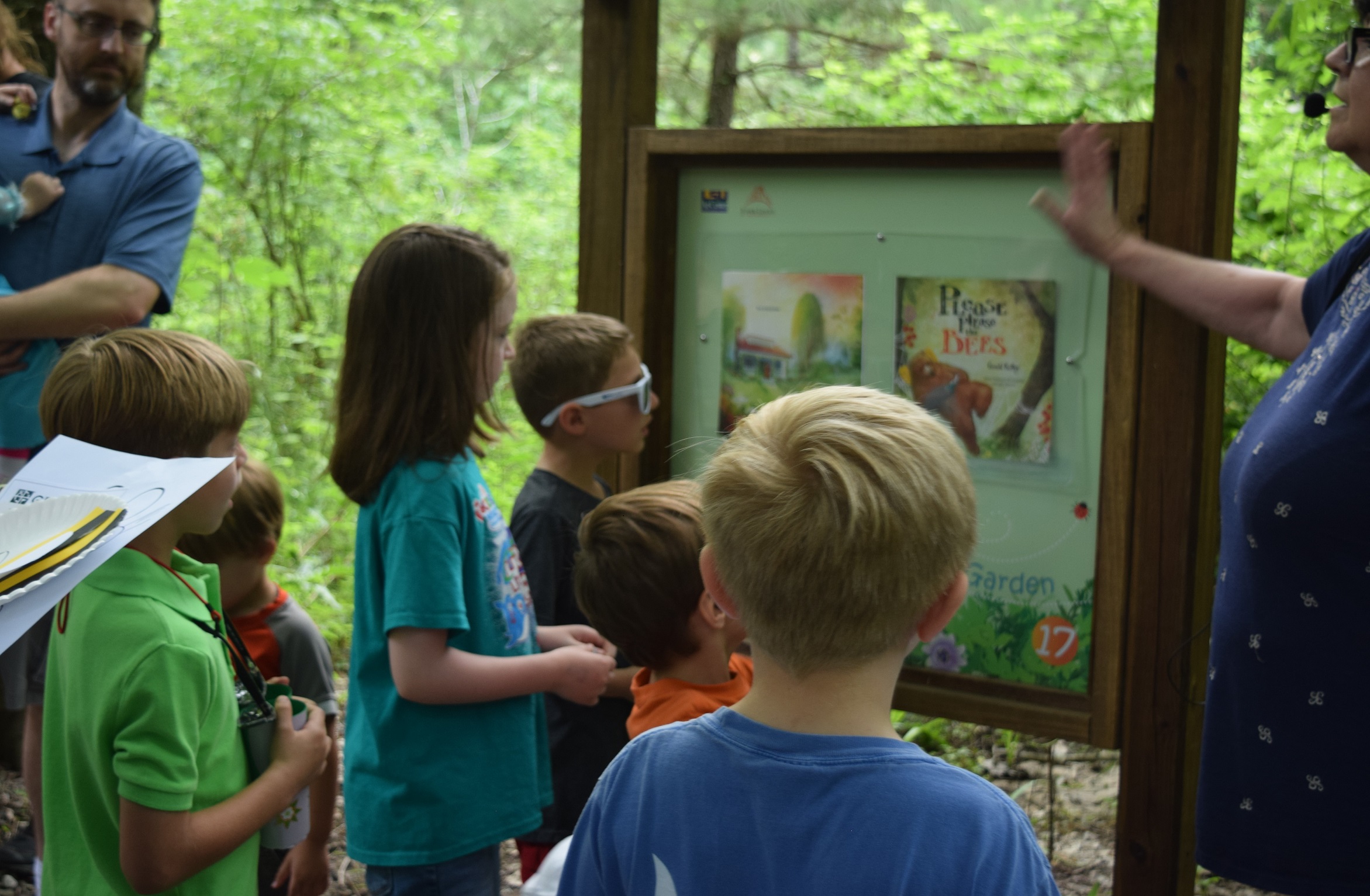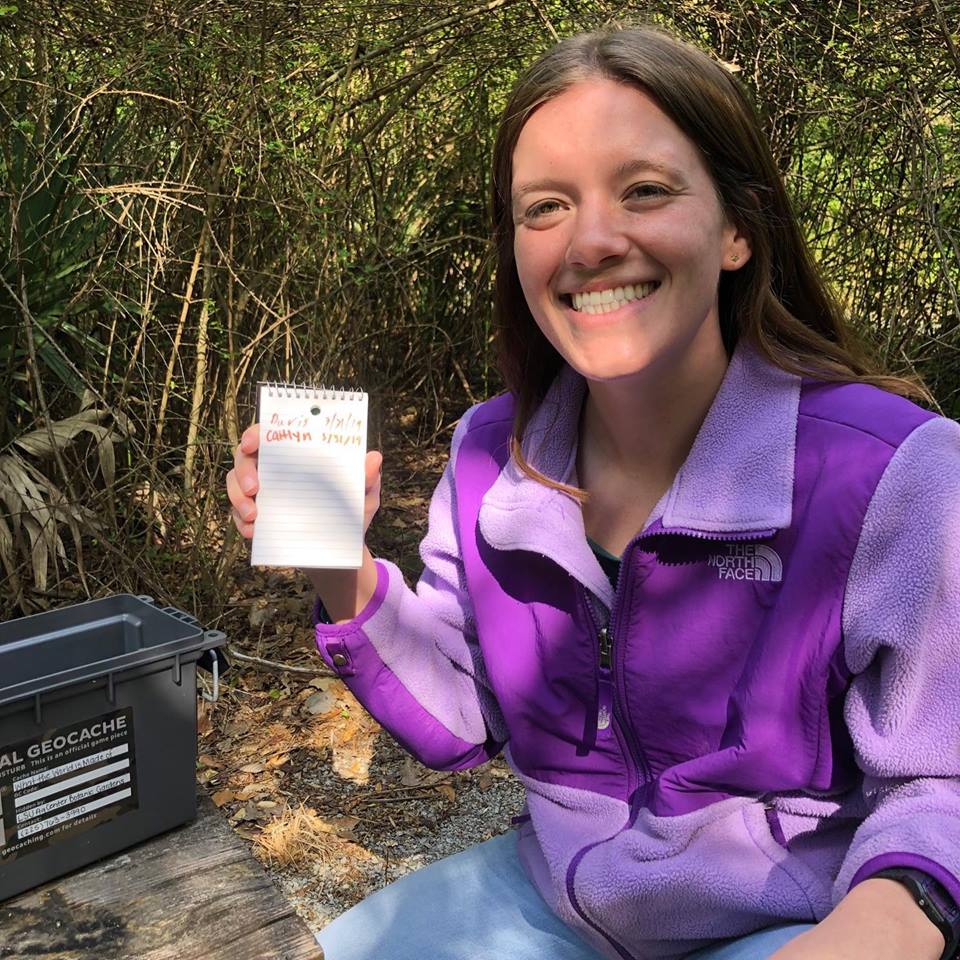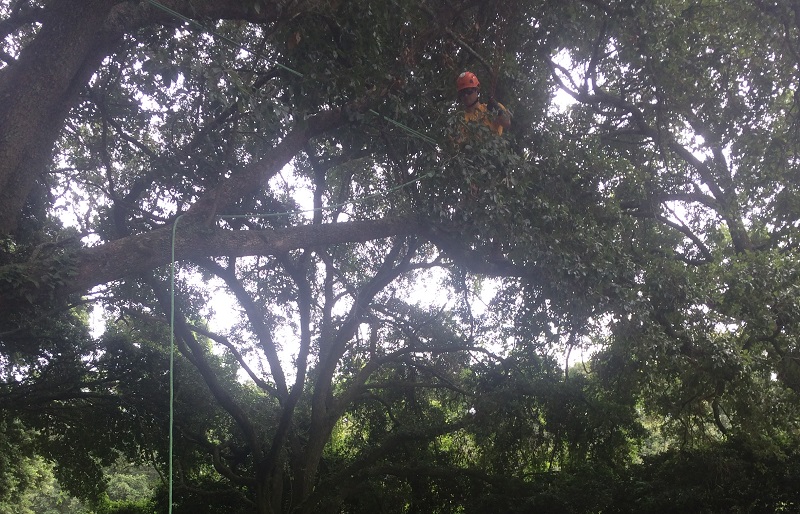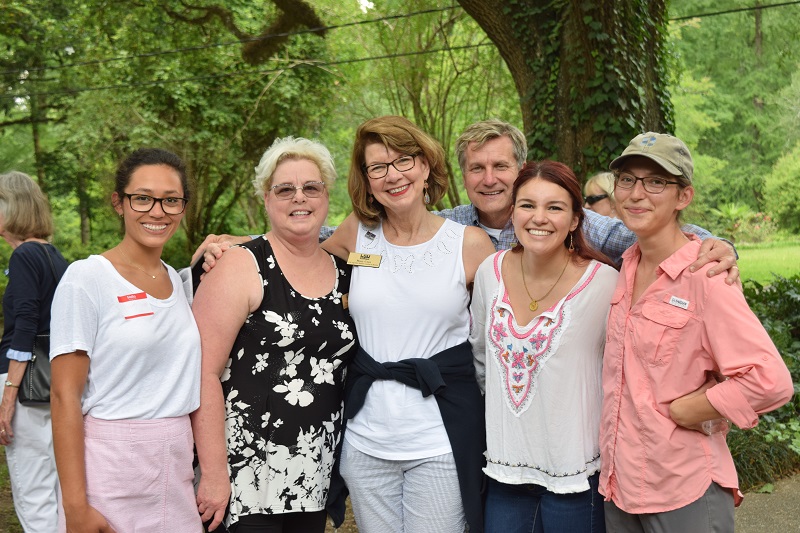College Internships through Learning by Leading™
LSU AgCenter Botanic Gardens at Burden is 440 acres of gardens, woodlands and wetlands located approximately 3 miles from campus. As part of LSU, the Gardens offers a Learning by Leading™ Internship Program (LxL) that empowers the intern to develop leadership skills that can lead to careers in sustainable horticulture and environmental stewardship.
Interns work directly with a staff mentor and under the leadership of student leaders, (co-coordinators). This happens during the first semester. The internship is for 3 hours a week. Course credit can be obtained for the semester by your School or Department. Second semester co-coordinators will receive an hourly wage and work up to 20 hours a week.
A listing of current internship postings can be found on Handshake at LSU: Learning by Leading™ internship Opportunities. Apply online today!
Internship Overviews

Educational Programming
Develop educational programming that includes geocaching, birding trails and other projects in the gardens and woodlands.

Vegetable and Ornamental Gardens
Learn about planting, growing, maintaining and harvesting the All-America Selections (AAS) vegetable and ornamental trial gardens. Conduct evaluations and understand best practices in planting and maintaining trial gardens.

GIS and Digital Mapping
Learn about GIS (Geographic Information Systems) and BG-BASE accessioning program to document botanical collections in gardens and arboreta

Urban Forestry
Learn about data collection in the forest recording tree measurements and using i-Tree software to quantify the benefits and values of trees in urban spaces.

Communications and Public Relations
Work with LSU AgCenter Botanic Gardens at Burden staff and fellow student coordinators to assist with social media, event planning and public speaking.Create social media posts that are educational and highlight the expansive gardens, woodlands, wetlands, and arboreta with the goal of drawing people into visiting the Botanic Gardens.
What is the Learning by Leading™ Internship Program?
The Learning by LeadingTM (LxL) Internship Program empowers the intern to develop leadership skills that can lead to careers in sustainable horticulture and environmental stewardship.
How is the LxL Program Different from a Traditional Internship?
In many traditional internships, students often are learners the whole time they are in the program. The LXL internship program differs from the traditional student internship program with the mindset that a student’s journey from a learner to leader in the workplace involves not just the learning experience, but empowers students to take on leadership roles thereby building a culture of leadership that extends into the community.
What is the Learning by Leading™ Ladder?
The LxL Leadership Ladder has six steps, from learner to participant and then to four different levels of leadership. A student does not have to move through the stages in a step wise fashion, although most students do the first three steps as an intern before moving on to one or more of the last three steps. Step #4, the second “leader” step, is to become a co-coordinator. Step #5 is to do a “Signature Project.” A Signature Project is when a student identifies an independent project they want to undertake, usually in the area of a student’s passion. Mentored by a staff person, the student plans and executes their project, often seeking outside funding to help make it happen. Step #6 is to become an apprentice. Apprentices usually want to make public horticulture their career, and they work closely with a staff mentor to take on greater responsibilities within normal public garden operations, be it in horticulture, nursery management, urban forestry, education or other areas.

How is an LxL Internship Structured?
Each LxL internship is led by a staff mentor with expertise and experience in the content area of the internship. They then recruit two student leaders called “co-coordinators”, who help develop, plan and lead the internship. The co-coordinators mentor up to 6 interns. The co-coordinators are paid hourly for 10-20 hours/week, and the interns get course credit in different departments depending on the internship (3 hours of work=1 internship credit). Co-coordinators work directly with their staff mentor(s), meeting weekly, creating the agendas before their meetings with their interns and developing an action plan for the semester for their interns. The internships run for the entire academic year. Some internships will accept new students each semester.
How is Continuity in Student Leadership and Knowledge from One Year to the Next?
Ideally, there would be a more senior co-coordinator and a more junior one working together. When the more senior co-coordinator graduates, the more junior one stays. In addition, new co-coordinators are ideally recruiting from among the interns who have already experienced the program. Once an internship is up and running, co-coordinators can lead the intern recruitment the semester before the internship will start. Most co-coordinators recruit new interns in the spring to start the following fall. Co-coordinators develop recruitment materials, review applications and run the interview and selection process with mentorship form their staff liaison.
What Qualities Do We Look for in a Student Leader/Co-coordinator?
An intern should show leadership potential, which can sometimes be seen in previous experiences they have had. Have they taken on extra responsibilities in previous job or volunteer experiences? Have they been promoted in a previous job or volunteer experience? Usually you will have first-hand experience with students as interns who identify themselves as leaders by their actions during the internship. There is no one type of intern that can be a leader. Both extraverts and introverts can be amazing leaders.
How are Student Projects Vetted and Chosen?
Staff mentors work with Co-coordinators to develop priorities and parameters for student projects. A goal is to align the intern’s projects with initiatives and priorities of the LSU AgCenter Botanic Garden at Burden. Co-coordinators take these priorities and parameters and work with their mentors to identify specific projects for the interns. The interns then choose which projects they want to do. Sometimes co-coordinators and interns will bring pa project or program proposal to their staff mentor(s) to consider.
